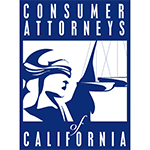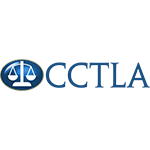California Class Action Lawsuit Attorney
If you’ve been deceived by a corporation, harmed by a dangerous product, or deprived of lawful wages at work, our California class action lawsuit attorneys can file a class action lawsuit and seek compensation on your behalf and on behalf of other victims.

There are times when a group of people will find that they’ve suffered similar injuries or had the same rights violated. When there’s a common denominator — a single entity or person who’s responsible — it doesn’t always make sense for each person in the group to take individual legal action.
Instead, it can be smart for the group to file a joint lawsuit in which they all have a vested interest in the result. This is known as a class action lawsuit, and it can help injured consumers in California recover meaningful financial awards when they’ve been harmed by the actions of large and powerful corporations.
Class action lawsuits are different from other types of civil litigation. To achieve the best results, these types of civil lawsuits must be handled by attorneys with an in-depth knowledge of the class action litigation process and extensive experience trying these matters.
The California class action lawsuit attorneys at Cutter Law P.C. are known and respected litigators, recognized for their ability to achieve significant results in courts across the country.
Contact our California class action litigators to discover how we can help you initiate an action and move forward with a legal claim for damages. We offer a free consultation and have offices conveniently located in Sacramento, Oakland, and Santa Rosa. Call today to get started.
- What is a class action lawsuit?
- How Our Class Action Lawsuit Attorneys in California Can Help You
- Types of Class Action Cases We Handle in California
- How do I file a class action lawsuit?
- Are class action settlements taxable in California?
- Trusted California Class Action Lawsuit Attorneys You Can Count On
What is a class action lawsuit?
In a class action, a group of people (known as a class) file a single lawsuit together against a common defendant.
The members of the class appoint a representative, who is essentially the face of the class action litigation.
Under California state law, individuals can become members of the class under Code of Civil Procedure Section 382, permissive joinder.
The law provides that individual claims can be combined and plaintiffs can seek a common outcome when the following two statements are true:
- The question is one of a common or general interest, of many persons, or when there are numerous parties.
- It’s impractical to have so many similar lawsuits pending before the court.
In other words, it makes sense to have victims band together and collectively pursue a common goal in the interest of time, cost, and justice.
What are the benefits of a class action lawsuit?
Class actions are generally appropriate in situations when plaintiffs are seeking a relatively small financial award. When a small recovery is sought, it might not be viable for a single victim to bear the cost of litigation. However, it can make sense for dozens, hundreds, or thousands of people to pursue a claim together and share the financial award if the class action is successful.
Do all of the plaintiffs in a class action get the same amount of money?
No, not typically. Even though the plaintiffs may have similar claims, the facts and circumstances of each individual’s situation will be unique. In a class action, damages are generally awarded proportionally, based on each member’s losses.

How Our Class Action Lawsuit Attorneys in California Can Help You
If you’ve been injured as a consumer or deprived of compensation in a California workplace, it’s important to discuss your legal rights with an experienced class action lawsuit attorney.
Even if your losses or injuries appear to be small, you might not be alone. Class actions are a great mechanism for forcing large corporations and employers to take responsibility for their harmful actions — and helping injury victims secure justice along the way.
At Cutter Law P.C., our California class action lawsuit lawyers can:
- Listen carefully to your side of the story and explain your legal options
- Investigate the circumstances of your injury or losses
- Determine whether other consumers or employees share similar experiences
- Determine whether legal action has been taken or a class has been formed in this matter
- Consult with experts and specialists who may be able to provide detailed insight into more technical or nuanced aspects of your case
- File a lawsuit in California state or federal court to assert your rights under the law and obtain appropriate compensation
- Move for certification to initiate the class action lawsuit process
- Aggressively pursue compensation from the defendant and represent you in settlement negotiations or at trial
Class actions are different from other types of personal injury or employment litigation matters. You’ll want to turn to an attorney with extensive experience handling cases like yours. Make Cutter Law P.C. your first call.
$23.5 Million
Settlement won for government fraud in a whistleblower case against one of the world’s largest medical device manufacturers
$240 Million
Settlement in a nationwide defective medical device case involving defective pacemakers and cardiac defibrillators against Boston Scientific and Guidant
$12.95 Million
John R. Parker recently handled a case against the medical device company, Biotronik, Inc. for claims that they defrauded state and federal government agencies.
$4.7 Million
Brooks Cutter and John Parker obtained the settlement on behalf of our whistleblower clients in a case involving government fraud.
Types of Class Action Cases We Handle in California
At Cutter Law P.C., our California class action attorneys represent injured consumers and aggrieved employees in cases involving:
- Hidden “junk fees”
- Consumer protection
- Data privacy
- Disability discrimination
- Equal pay
- Wage and hour violations
- False Claims Act
- Dangerous products
- Dangerous drugs
- Antitrust
- Environmental hazards
- Securities fraud
- Bank fraud
- Insurance bad faith
- Product recalls
- Social media addiction
- Forme posture bras
- Daily fantasy sports game
If you’ve been harmed because of a defective product, diagnosed with an illness after toxic exposure, denied wages or overtime pay, targeted as a victim of fraud, or deceived by a corporation, contact our class action lawsuit attorneys today for immediate legal assistance.

How do I file a class action lawsuit?
The first step in a class action is filing an initial claim in a California state court. The claim can be filed by one person or a group.
The person initiating a class action lawsuit is known as the class representative.
In addition to filing a claim, the class representative must seek certification.
What is class action certification?
Certification is a requirement for all class action litigation in California. When you seek certification, you must present evidence that there’s “an ascertainable class” and that the members share a “well defined community of interest.”
A judge will certify a class if the following conditions are met:
- It’s impracticable for all members to come before the court.
- There are substantially similar common questions of law or fact.
- The claims of the representative plaintiffs are typical of the claims of the class.
- The representative plaintiffs will fairly and adequately protect the interests of the class.
In other words, a certification will be granted and the case will proceed as a class action under Section 382 when a judge determines that the class members have sustained similar injuries or losses and that it’s in the members’ and the court’s best interests to consolidate the matter into a single case.
It has to make more sense to bring the matter as a class action rather than individual lawsuits, both in terms of cost and likely outcome.
What happens after a class action is certified?
Once a class action lawsuit has been certified, the court delivers a notice of the claim to the potential members and explains their legal rights. You don’t need to do anything if you’re a member of the class. The case will move forward, and you will share in the results if the case is decided in the class’s favor.
The class representative will be more involved in the process, but they will likely receive an incentive award for spearheading the movement.
What happens if I decide I don’t want to be a member of a class action?
When you’re a member of a class action, you give up the right to file an individual claim and seek your own result. If you decide that you no longer want to be a member of the class, you have the right to opt out. When you opt out, your right to file an individual lawsuit is restored.
Are class action settlements taxable in California?
Generally, yes. Your financial recovery in an employment class action or consumer class action lawsuit will be considered income by the IRS and Franchise Tax Board. As a resident of California, your income is taxable by the state and federal government.
However, some parts of your financial award may be subject to taxation whereas others are not.
For instance, awards to compensate for medical expenses (not previously deducted), property damage, and physical pain and suffering may not be taxable.
Awards paid for emotional distress, lost wages and income, and punitive damages will be fully taxable.
Trusted California Class Action Lawsuit Attorneys You Can Count On
Large corporations and employers in California have incredible power and resources. When you’ve been harmed because of their actions, you might feel powerless to make change, force accountability, and recover compensation. That’s where our California class action attorneys at Cutter Law P.C. can help.
By filing a class action claim, you and other victims can band together and work toward a common goal.
For decades, we’ve been tireless advocates for clients just like you across the state of California, winning over $100 million for them in the process.
Our winning trial attorneys, vast resources, and experience handling class action lawsuits nationwide can help you level the playing field. Contact our law firm to arrange a free consultation today.
Brooks has a long-established, respected reputation as a skilled trial attorney and a record of proven success.
Testimonials
Schedule A Free Case Review
"*" indicates required fields
Our Office Locations
Sacramento Office
401 Watt Avenue Suite 100
Sacramento, CA 95864
Phone: 916-290-9400
Oakland Office
Cutter Law P.C.
1999 Harrison Street Suite 1400
Oakland, CA 94612







